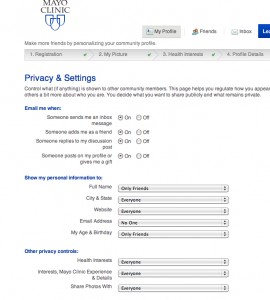I graduated from the Founder Institute’s Paris Spring 2011 program. I want to write this post so that anyone interested in joining the program can get an idea of what the program is like. If you have any questions, please feel to reach me at gangadhar at sulkunte dot net.
Founder Institute is a Silicon Valley based startup incubator which has branches in many cities/countries in the world – Paris, Singapore, Chile, Indonesia, Brussels, Berlin etc. These branches then recruit many of the local entrepreneurs to serve as mentors to the founders. The local directors of the institute will themselves be entrepreneurs. The goal of the program is to take founders with ideas to start a viable business at the end of the program.
The application process involves a intelligence test which is a standard IQ test. Once you get through the entrance tests, you will pay the fee for the program before joining the program. The program is a series of sessions where the mentors (local and visiting) will talk about different aspects of starting your company – how to validate your idea, how to write your business plan, writing and executing marketing plans, fund raising etc. You will take this and apply to your company as part of the work for that week.
At every session, the founders get to pitch and hone their pitch about their company. The sessions are one evening a week and take place over a period of 3-4 months. They are very rigorous involving meetings with your teams and assignments.
This is probably the only incubator program that accepts solo founders. They will try to help you find co-founders in the program. They will also point you to the many startup related programs taking place in the local community. I know of a couple of founders who found their co-founders in the program.
The advantages of the program as I see it are:
- Getting a cohort of founders with whom you can bounce your ideas and get great feedback. Personally, this was the best part for me since it instantly got me a community of founders which I would have difficulty getting to since I moved here recently.
- Connecting to the local startup community and the investors community
- Great feedback that you will receive about all aspects of your idea or startup as part of the program.
You should be aware of the following:
- You should be serious about working for your company at the end of the program.
- The program is very rigorous. If you are a solo founder, you will be working on all the assignments by yourself apart from your day job. This can be over whelming and you might drop out of the program.
- Have funds to spend on your company since you are building your company as part of the program.
- Have some technical expertise since you will be doing many technical things like setting up your domain, email, blogs etc as part of the program.
- Check out the local mentors to see who will be a good fit for your type of business.
- The program is mainly for technology startups. If you starting a different type of company, your experience will be very different and you might want to check the local mentors list to see if anyone will fit your company’s profile.
I hope this post helped you. Please let me know in the comments or by email.

 Follow
Follow